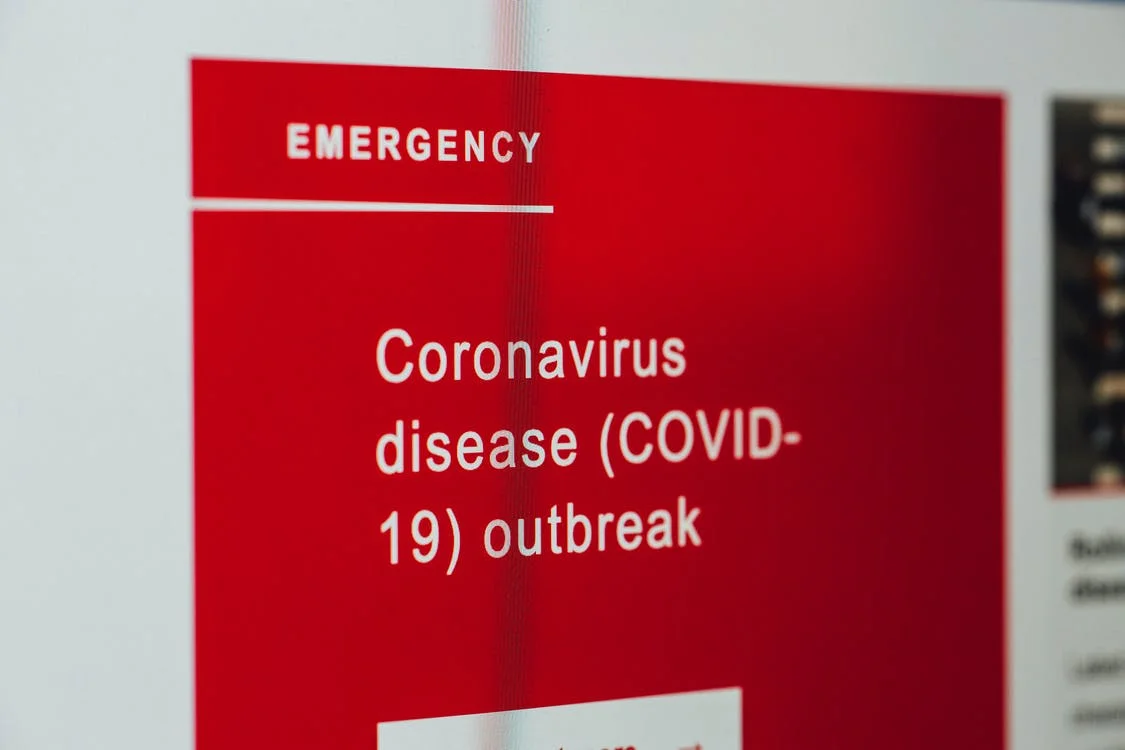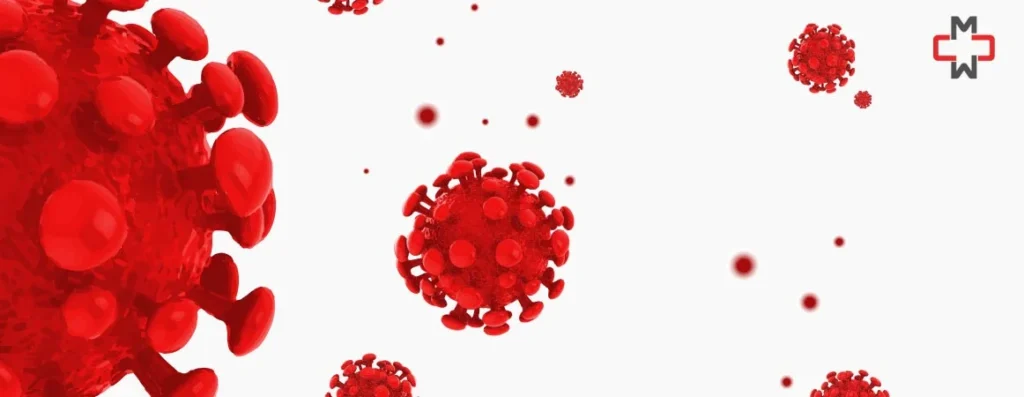A fortnight ago, Tulio De Oliveira, a leading investigator of the Network for Genomic Surveillance, and director of the Centre for Epidemic Response and Innovation at Stellenbosch University in South Africa relayed the news about the discovery of the latest COVID-19 variant to the World Health Organizations (WHO).
What was later declared as a ‘Variant of Concern’ by the WHO on Nov. 26th, became the reason behind the spread of another threatening wave of COVID-19. Highly prevalent and limited to the Gauteng Province of South Africa, the Omicron variant caused concern as it began infecting over 200 people in the vicinity, every day.
Tulio De Oliveira considered this sudden rise to be a slight ‘uptick’ in cases initially; mainly owing to the fact that much of the population in South Africa had not been vaccinated in the first place. Gauteng had already seen a rise in infections from the Delta Variant previously.
As per serology testing, about 80% of Gauteng’s population had already been infected with the Delta Variant, so the sudden rise in COVID-19 infection brought impending fear. As a result, Gauteng increased its genomic sequencing surveillance only to discover the Omicron variant a week later.
What is Omicron?

The S Protein is also responsible for causing our humoral immune system to elicit an antiviral response to the virus’s entry. The humoral immune system produces neutralizing antibodies (NAbs) to counteract the virus’s entry into the host cell.
What do you think happens when you take a COVID-19 PCR test? Once the test comes back positive, genomic surveillance labs study the genetic sequencing of the Coronavirus to report any mutations in its genetic pattern. Being the primary perpetrator of Severe Acute Respiratory Syndrome (SARS), the S Protein is ideally the main target for vaccine production.
The Omicron variant has over 30 mutations in its Spike Protein, thereby raising significant concern and spreading widespread fear. But, a lot has to be said about the latest COVID-19 variant; while many areas have reported the Omicron variant to cause milder, asymptomatic infections, others have reported severe respiratory distress.
How Is The Omicron Variant Different From The Other Variants?
Questions are being raised – what if the Omicron variant trumps the Delta variant in its infectious spread and capability? Scientists are still researching the Omicron variant, and the current data might not be enough to declare the exact harming potential of the new strain.
But one thing’s for sure – as the S protein is implicated in viral transmission, changes in its genomic pattern might cause more aggressive infections, particularly in susceptible individuals. As vaccines are made to target the S protein, the Omicron variant can possibly dodge the vaccine’s efficacy.
However, gathering data from South Africa’s reported cases, Pfizer proposed that the Omicron variant might cause milder infections in contrast to the previous strains of the Coronavirus. To make sure the public is updated with the right information instead of mere assumptions, scientists are gathering data from real-world cases of infection.
Once obtained, scientists can either use the real virus or replicate the Omicron variant in labs. The main goal is to infect lab-grown human lung cells with the new variant so that scientists can compare the severity of its effects with that of other variants.
Omicron Coronavirus Vaccine Efficacy
Not much can be established about the vaccine’s efficacy in preventing Omicron from infecting people who have already been vaccinated.
Many stipulate the ‘lock and key model’ to explain how vaccines could behave in response to an Omicron infection. As with any lock and key model, there is a specifically designated key for every respective lock. Changing the key’s contours might make it difficult for the lock to work or respond.
Similarly, many scientists believe that vaccines (locks) might not recognize the new strain (the key) as the Omicron variant has over 30 new genomic sequences. Scientists are however, collecting antibodies from people who have been vaccinated and received an additional third dose or a booster to counteract the vaccine’s efficacy against Omicron.
Get Vaccinated – No Matter the Variant
All the vaccines, however, have demonstrated efficacy against the previous strains.
It is plausible that these vaccines might provoke our humoral immune system to react in time and prepare our body for defense. One of the probable reasons why some people had milder symptoms from the Omicron variant is perhaps the body already has a built-up defense – if it is mild – in action.
Currently, the CDC is reinforcing safety measures and guidelines regarding COVID-19 vaccinations. With successful clinical trials in children and adults alike, vaccinations are now available for anyone aged 5 years and above.
According to the WHO and CDC, boosters can help reinforce immunity in people who have been vaccinated at least 6 months prior. Anyone aged 18 years and above is eligible for getting a booster dose. The CDC advises the community, especially those susceptible to infections, to visit their nearest medical centers and get vaccinated for disease prevention.
MMA is currently facilitating boosters for the elderly (aged 65 and above), as well as individuals who are either immunosuppressed or suffering from systemic illnesses.
Book an appointment with MMA and get your COVID-19 vaccine or booster today!
Precautions Remain The Same
So far, the Omicron variant has spread to California, U.S, the U.K, as well as to a host of South Asian countries such as India. With travel bans imposed to and from South Africa, experts aim to study the Omicron variant before its mutations cause havoc in the world.
- Maintain social and physical distance from people in any outdoor setting.
- If you’re entertaining guests at home, make sure to maintain the SOPs.
- Wear a mask whenever you go out or meet anyone out of the norm.
- Sanitize and disinfect your household items once in a while.
- Try to steer clear from crowded places. However, if it is a prerequisite, try to keep yourself safe. By ensuring your safety with a protective mask, you are not only protecting yourself from the virus but also others from contacting the infection.
Try not to panic or act on misguided information about the Omicron variant. The CDC and WHO should be your primary resources for obtaining updated news and guidelines for the management of Omicron.
The COVID-19 Pandemic seems never-ending, but we have come a long way, indeed. We have struggled with anxiety and loneliness during the lockdown, stocked our shelves with tissue paper rolls, handwashes, and detergents, and wore a mask as our second skin.
Get tested for COVID-19 if your febrile symptoms raise suspicion of Coronavirus. We, at Manhattan Medical Arts, provide a series of COVID-19 tests which can aid in confirming the cause of your infectious symptoms.
Worried whether you have access to COVID-19 testing facilities near you?
Good news! Manhattan Medical Arts is currently offering the following:
- COVID-19 RT-PCR testing with results on the same day, within 30 minutes, or as per standard protocol (after 48 – 72 hours).
- COVID-19 Rapid Antigen Test
- COVID-19 Antibody Test
– Disclaimer –
This blog is for informational & educational purposes only, and does not intend to substitute any professional medical advice or consultation. For any health related concerns, please consult with your physician, or call 911.
Last reviewed by Dr. Syra Hanif, M.D. on 12/13/2021
Learn more about our editorial process.
-
About The Author
Dr. Syra Hanif M.D.Board Certified Primary Care Physician
Dr. Syra Hanif is a board-certified Primary Care Physician (PCP) dedicated to providing compassionate, patient-centered healthcare.
Read More





